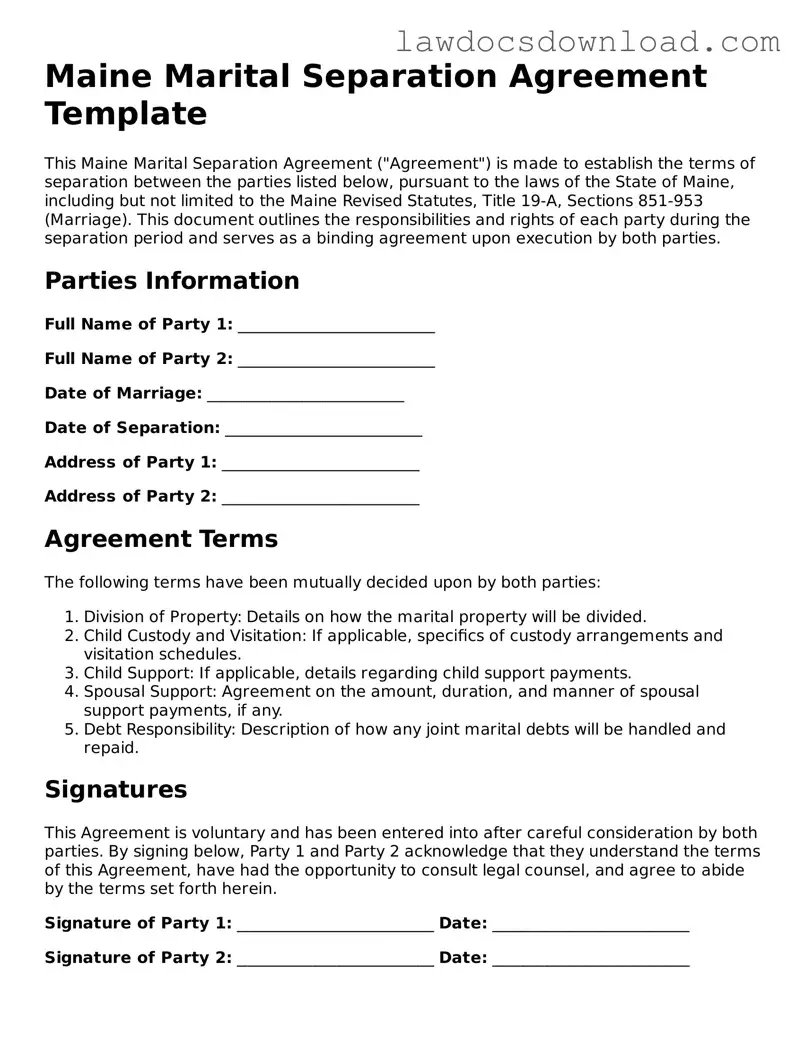Legal Maine Marital Separation Agreement Form
The Maine Marital Separation Agreement form is a legal document used by couples who want to formalize their decision to live apart without officially ending their marriage. It helps both parties agree on important aspects, such as asset division, debt responsibility, and if applicable, matters involving children. This form ensures that each individual's rights are respected and protected during the separation period.
Launch Marital Separation Agreement Editor Here

Legal Maine Marital Separation Agreement Form
Launch Marital Separation Agreement Editor Here

Launch Marital Separation Agreement Editor Here
or
Free Marital Separation Agreement
Get this form done in minutes
Complete your Marital Separation Agreement online and download the final PDF.